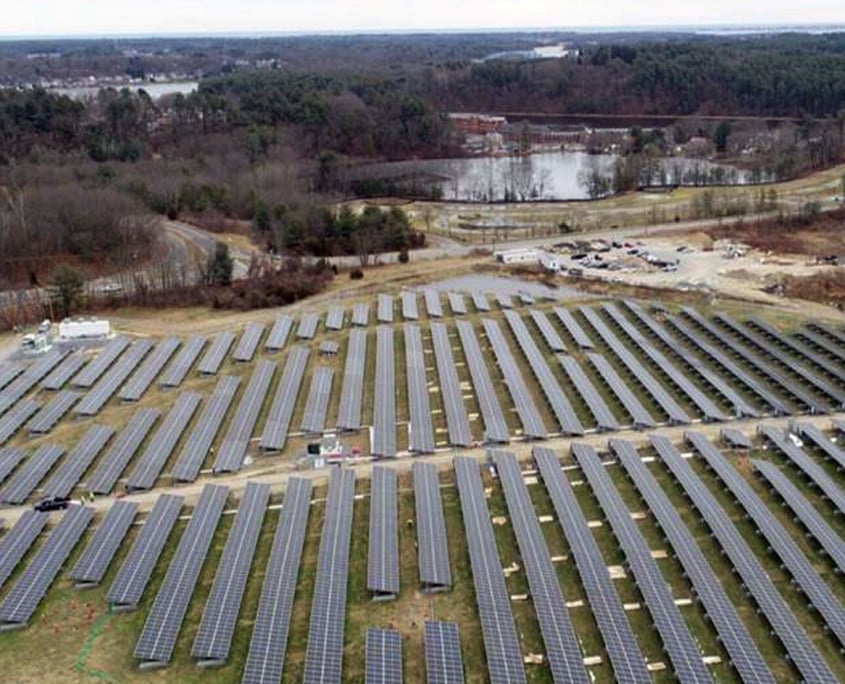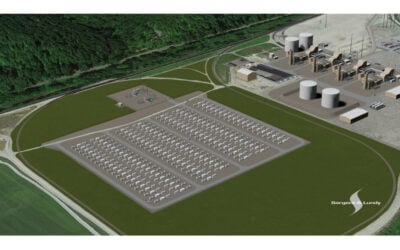
Legislation supporting clean energy in Massachusetts with a heavy focus on offshore wind looks set to go into law, including some important actions to be taken on energy storage.
‘H.4515: An Act Advancing Offshore Wind and Clean Energy’ passed by the Massachusetts House of Representatives on 3 March and now awaits Governor Charlie Baker’s signature.
Enjoy 12 months of exclusive analysis
- Regular insight and analysis of the industry’s biggest developments
- In-depth interviews with the industry’s leading figures
- Annual digital subscription to the PV Tech Power journal
- Discounts on Solar Media’s portfolio of events, in-person and virtual
The legislation will bring into law a policy commitment to soliciting 5,600MW of offshore wind capacity — up from a proposed 4,000MW target — as the Commonwealth targets net zero emissions status by 2050 and seeks to make the most of significant hosting capacity for the renewable energy technology.
The latest bill aims to enable the target to be achieved and directs the investment of US$750 million into clean energy growth and development, which the administration authorised later last year. It will also enact tax incentives for offshore wind worth up to US$50 million per year.
A central offshore wind industry trust fund will be set up, which will administer funds that can support up to 50% of the costs for certified offshore wind projects to connect to the power grid, which has been a barrier so far.
That much extra wind will require significant transmission capacity and the Massachusetts’ Department of Energy Resources (DOER) will solicit bids for transmission infrastructure to be able to deliver the energy generated to where it will be used.
Directing support for storage, including long-duration and multi-day
The DOER will also instruct electric companies to create transformation plans for upgrading distribution and transmission lines and other equipment.
Those plans, among other things, will promote energy storage and electrification technologies that are recognised as necessary to decarbonise both environment and economy. The plans must also set out in detail how improvements will be made, including how energy storage and other new technologies like smart metering will be promoted.
Electric companies must also describe in detail the opportunities they could seize to deploy energy storage for increasing renewable energy utilisation and reducing curtailment of renewable energy generation.
Electric companies will be required to offer explanations for their investment decisions along three planning horizons: 5-year forecasting, 10-year forecasting and demand assessment to the end of 2050.
A Grid Modernization Advisory Council will be created, headed up by the DOER commissioner and with members representing various sectors: including a representative of the energy storage industry, along with representatives from environmental justice groups, resiliency and weatherisation planners, the electric vehicle industry, large-scale transmission-connected renewables and others.
Meanwhile offshore wind regulations are expected to allow bids in competitive solicitations for wind generation paired with energy storage, including long-duration energy storage (5 hours to 14 hours duration) and multi-day energy storage (capable of dispatching at full rated capacity for more than 24 hours).
The DOER, in collaboration with a new Massachusetts Clean Energy Center, will study how to optimise deployment and utilisation of long-duration and multi-day energy storage systems; including the necessity, benefits and costs of requiring distribution companies to conduct joint competitive solicitations and procurements for energy storage systems.
These could see distribution companies procure or solicit “up to 4,800GWh of stored energy from renewable generation delivered to periods of high demand each year”.
Distribution companies are also going to be required to come up with new tariffs that can be applied to energy storage systems on their networks — or conversely to issue a notice of intent to file a distribution service rate schedule with the Federal Energy Regulatory Commission (FERC) for standalone energy storage systems which are in the distribution company’s service area but plays into New England wholesale electricity markets.
Massachusetts has already had policies in place which have supported energy storage’s role in decarbonising and modernising the electricity network: including a world-first Clean Peak Standard, which means the percentage of power on the grid at peak times from low carbon sources must increase every year.
There is also the 3,200MW Solar Massachusetts Renewable Energy Target (SMART) programme, which promotes cost-effective solar power and incentivises solar-plus-storage project developers to participate.
Massachusetts lawmakers have spotted that offshore wind presents a huge opportunity for the region and is making energy storage integral to that push. Other eastern states, Maryland, New Jersey, and New York, are also targeting large shares of the country’s offshore wind generation, with New York’s state target at 9GW the largest for any state in the US.






